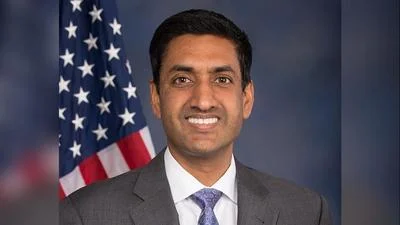John Taylor, Professor of Economics at Stanford University and developer of the "Taylor Rule" for setting interest rates | Stanford University
John Taylor, Professor of Economics at Stanford University and developer of the "Taylor Rule" for setting interest rates | Stanford University
The following books have been recommended by faculty members for their insightful perspectives on sustainability and related topics.
Jeff Goodell's 2023 publication has been highlighted by Anat Admati, the George G.C. Parker Professor of Finance and Economics at Stanford University. Admati stated, “As billions suffer from debilitating and dangerous heat waves, Jeff Goodell provides a vivid and highly readable, if scary, account of the impact of deadly heat on society.” She emphasized that it is a must-read for anyone concerned about the future.
Chris Field, Director of the Stanford Woods Institute for the Environment, recommended Charles Sabel and David Victor’s 2022 book. He remarked, “This book argues that there is still a lot we need to learn about solutions to the climate crisis,” advocating for an approach focused on learning from diverse experiments.
Rob Jackson's upcoming book in July 2024 was praised by Richard Nevle, Deputy Director of the Earth Systems Program. Nevle noted that Jackson takes readers "across the globe to learn from visionary scientists," offering a hopeful vision for restoring the atmosphere. Emily Polk also commended Jackson’s work for its boldness in addressing climate issues.
Inês Azevedo suggested N. Scott Momaday’s 2020 work. According to Azevedo, Momaday “reflects on his native ground and its influence on his people” while warning about environmental protection.
Jane Willenbring expressed her fascination with Jeffrey A. Lockwood's 2009 book on locusts in U.S. history before their mysterious extinction.
Chris Field also recommended Benji Backer's 2024 book which builds a case for political conservatives to engage in climate activism.
Anat Admati highlighted Naomi Oreskes and Erik Conway’s 2010 publication for its examination of how certain scientific advisors misled public opinion over decades.
Emily Polk suggested Emily Raboteau's 2024 book as a powerful meditation on race, climate justice, and environmental protection.
David McCullough's 1987 historical account was described by Jane Willenbring as “a great cautionary tale of a human-made disaster.”
Michael Wara recommended Carolyn Kousky’s 2022 work as an approachable introduction to how climate change stresses insurance systems.
Jonathan Payne appreciated Ed Yong’s 2022 book for illustrating how different species experience the world uniquely compared to humans.
Tiya Miles' forthcoming book in 2024 was praised by Emily Polk for exploring Harriet Tubman's life within her ecological reality and kinship with other enslaved women.
Jane Willenbring suggested Candice Millard's 2006 documentation of Teddy Roosevelt’s Amazon expedition post-1912 election defeat as an enlightening historical journey.
Paul Segall endorsed Colum McCann’s 2020 novel based on true stories from Israeli-Palestinian conflict victims advocating peace despite personal loss.
Dustin Schroeder found Richard Cockett’s 2023 publication delightful for reflecting parallels between Vienna's historical ideas and contemporary issues.
William Barnett recommended Robert Musil’s classic novel (1930; translated in 1995) set in pre-WWI Vienna as both genius-breeding ground and fascism incubator due to societal tumult.
Lastly, Rob Jackson described Robert MacFarlane's 2019 exploration of Earth's underworlds as "spiritual."




 Alerts Sign-up
Alerts Sign-up